Abstract
Clinical and laboratory examinations were carried out on a total of 338 monkeypox patients in Zaire from 1981 to 1986. An animal source of infection was suspected in 245 (72%) and interhuman transmission for the remaining 93 patients. Among those whose infection was presumably acquired from an animal source, the most affected groups were children aged 3-4 years (27%) and 5-6 years (20%), while only 4% of cases were over 15 years old; there was a considerable preponderance of males (58%) over females (42%), especially in the age group 5-14 years. Among those presumably infected by person-to-person transmission, the age distribution was more uniform, adult patients tending to be relatively more common, and there were more females (57%) than males (43%).
Based on comparisons of the frequency and intensity of clinical signs and symptoms among patients infected from an animal source and those who were infected by another patient, there was no evidence that the disease becomes more severe and the transmitted virus more virulent or more easily transmissible from person to person after one or more passages through human hosts.
Full text
PDF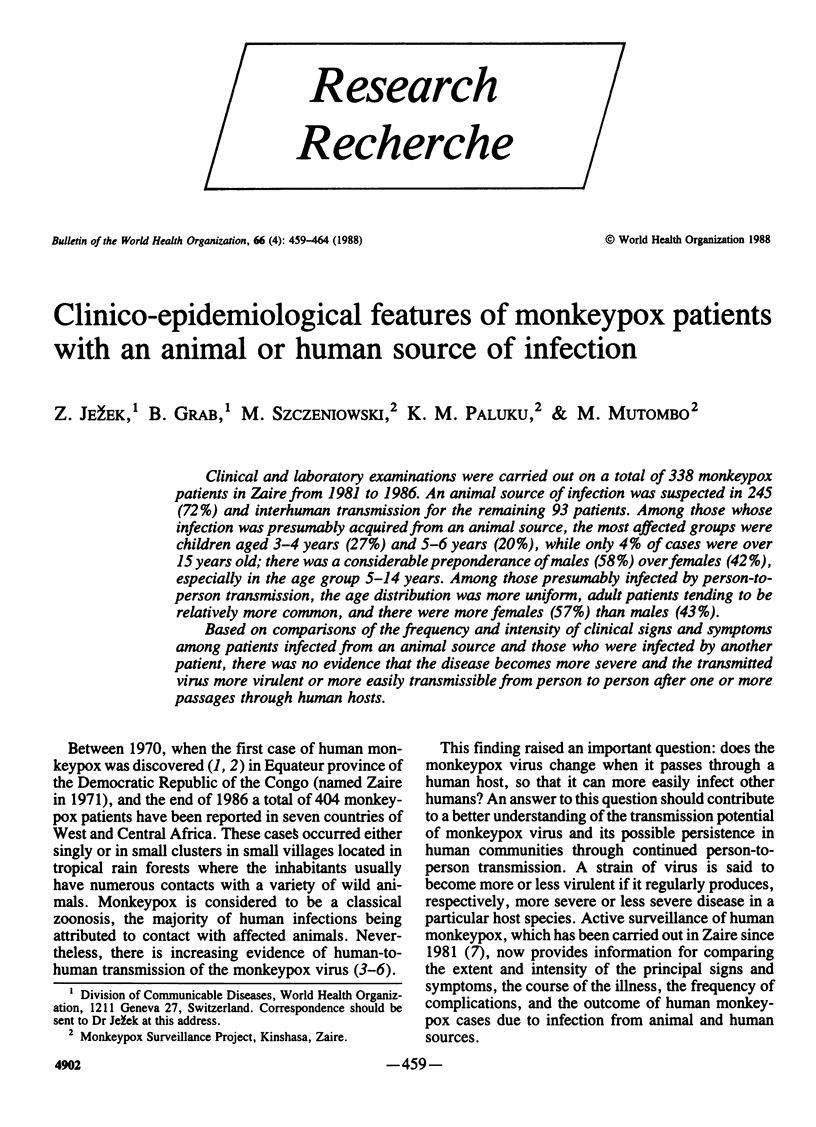
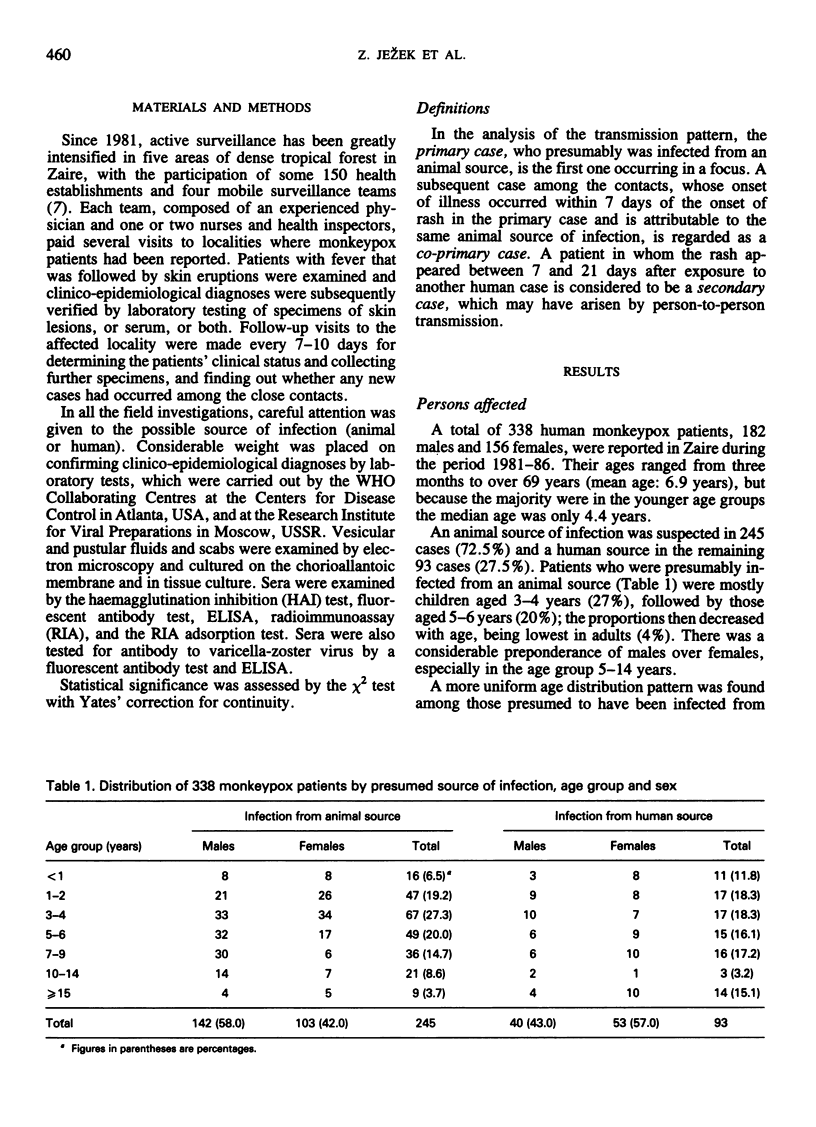
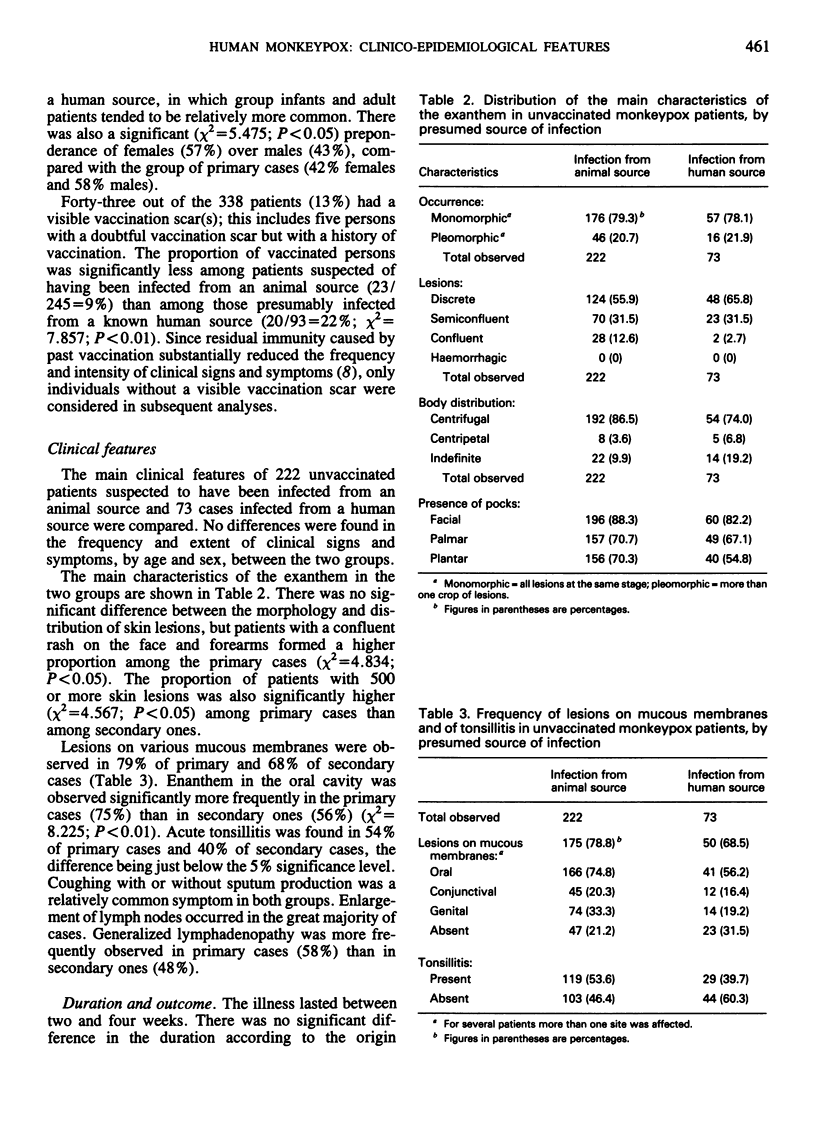
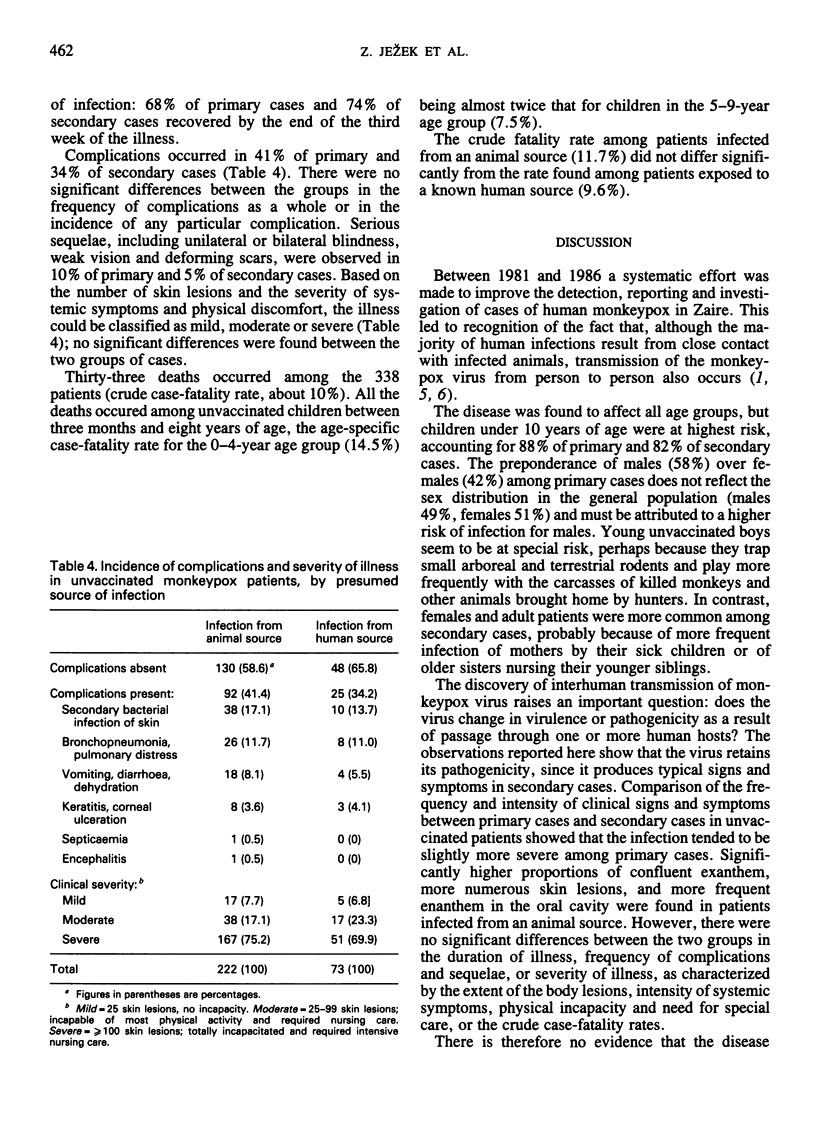
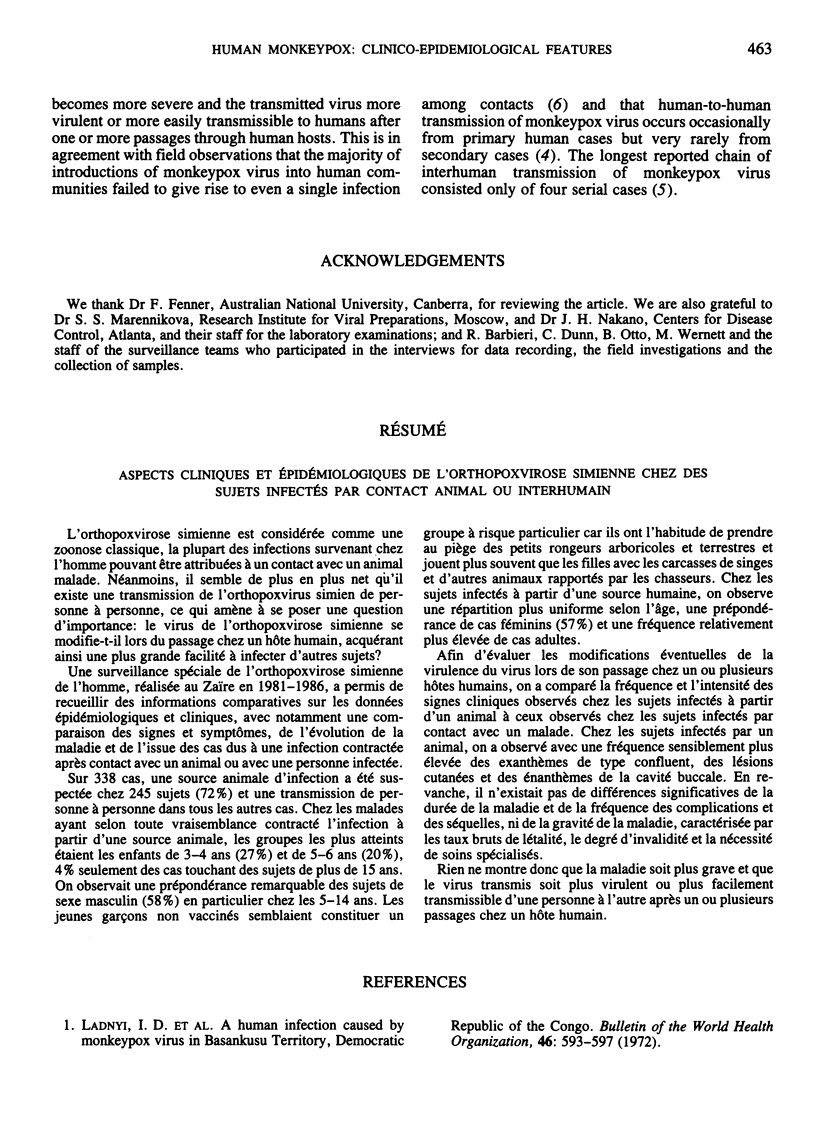
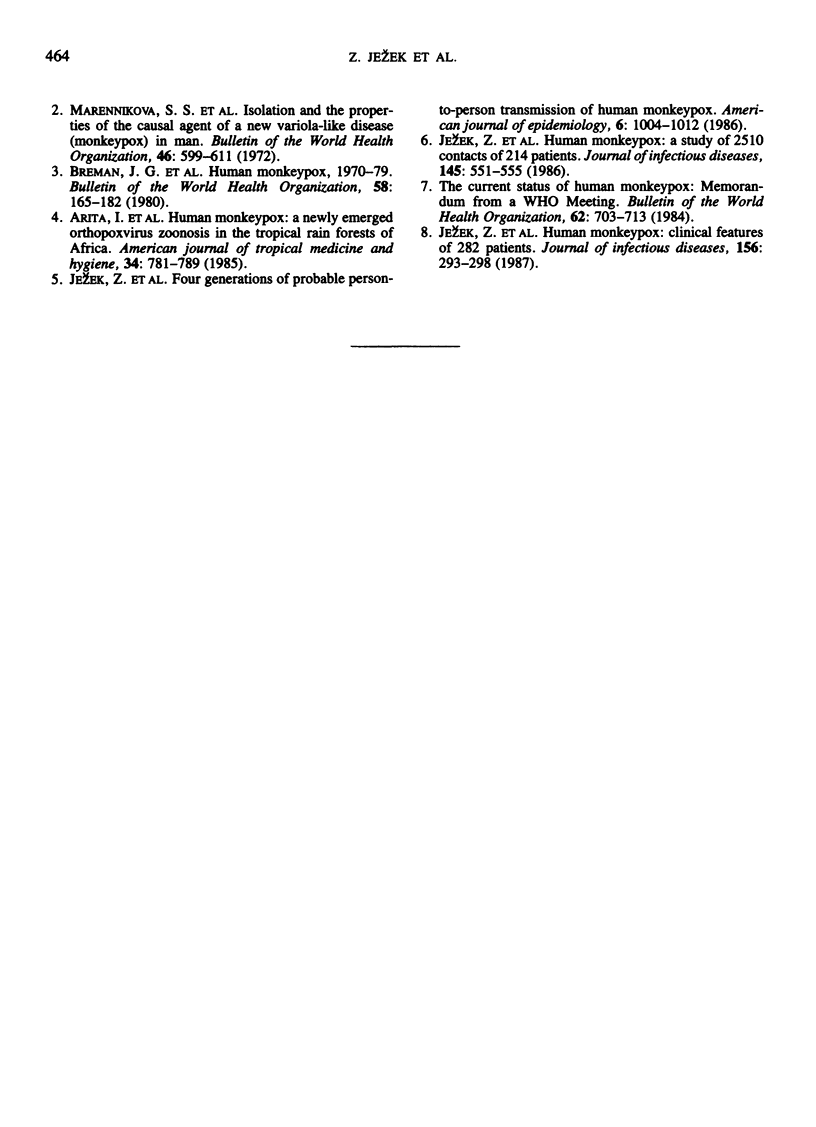
Selected References
These references are in PubMed. This may not be the complete list of references from this article.
- Arita I., Jezek Z., Khodakevich L., Ruti K. Human monkeypox: a newly emerged orthopoxvirus zoonosis in the tropical rain forests of Africa. Am J Trop Med Hyg. 1985 Jul;34(4):781–789. doi: 10.4269/ajtmh.1985.34.781. [DOI] [PubMed] [Google Scholar]
- Breman J. G., Kalisa-Ruti, Steniowski M. V., Zanotto E., Gromyko A. I., Arita I. Human monkeypox, 1970-79. Bull World Health Organ. 1980;58(2):165–182. [PMC free article] [PubMed] [Google Scholar]


